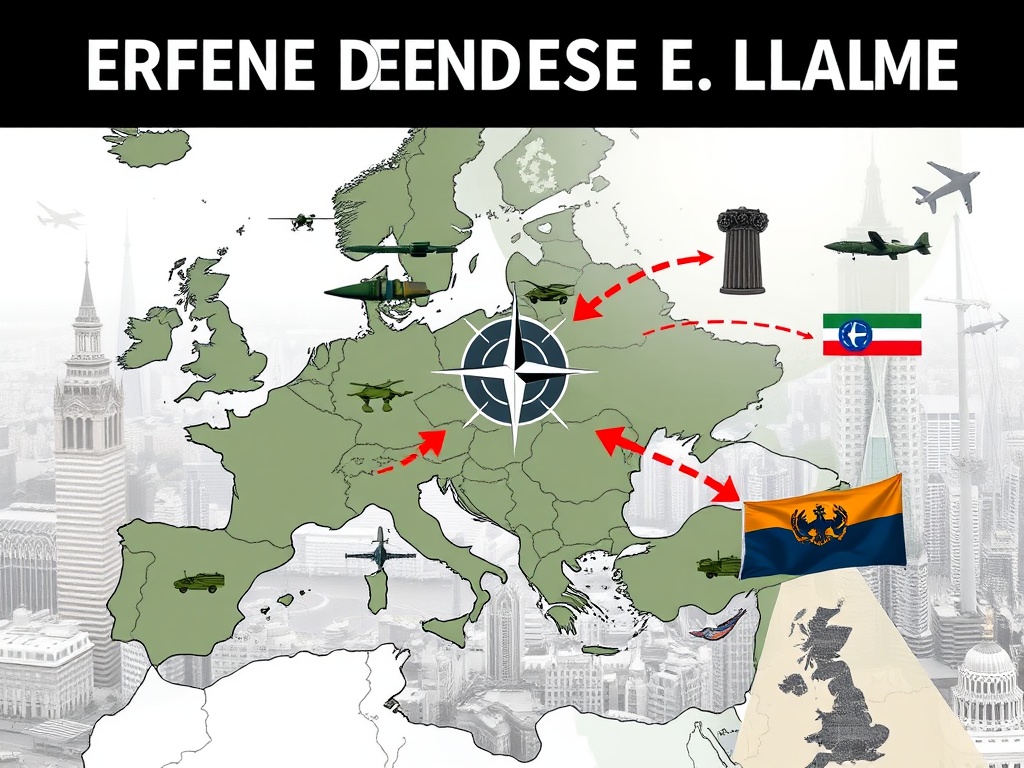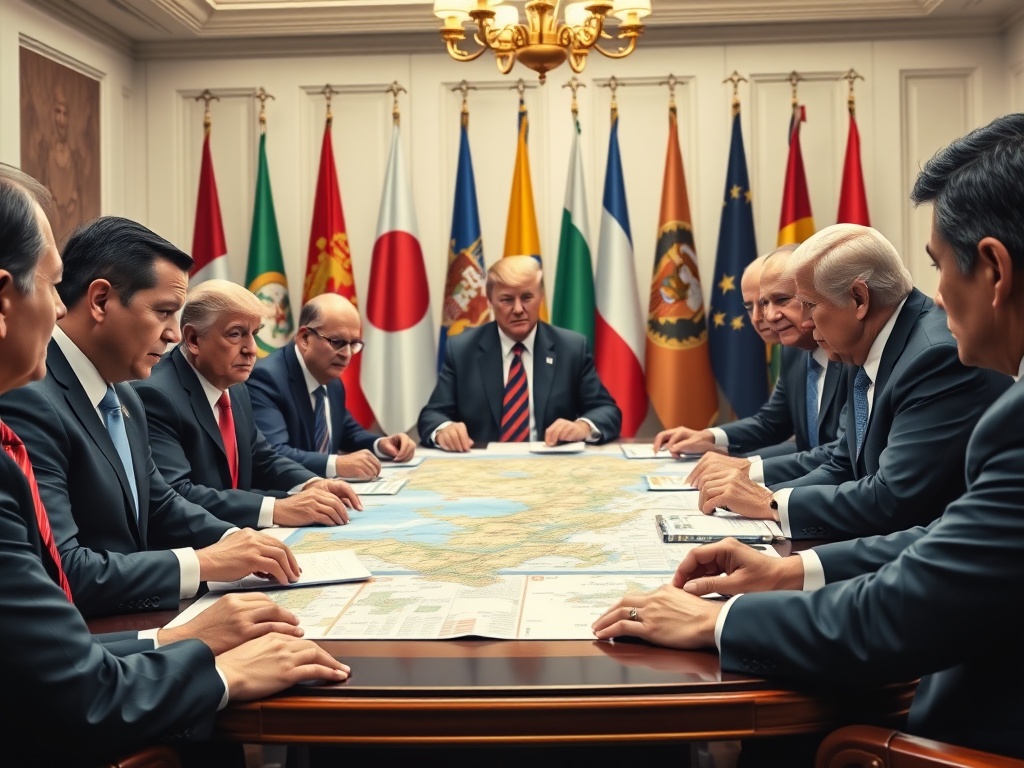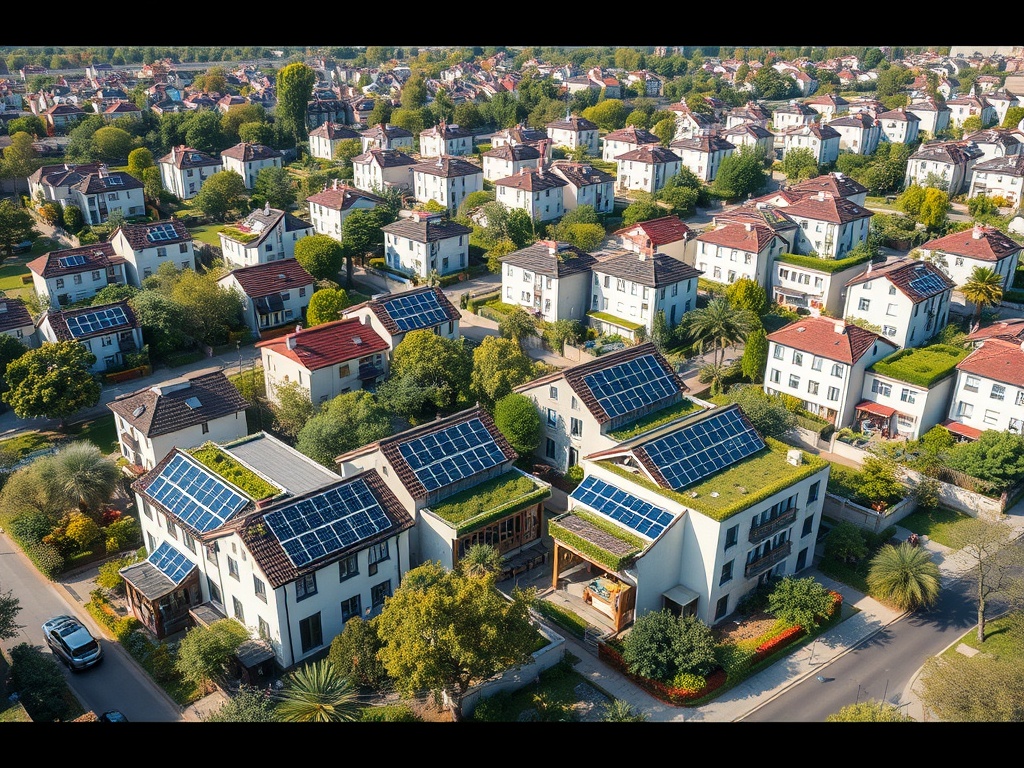Trump’s Message: A Shift in Global Defense Dynamics

Donald Trump’s stance towards the United States’ longstanding allies in Europe and beyond is unmistakable: the reliance on the American security umbrella has persisted for too long. The United States is signaling a desire to withdraw its robust support for Ukraine in its battle against Russian aggression. This shift implies that the days of expecting Uncle Sam to guarantee our safety are over, and nations must now take responsibility for their own defense.
The consequences for Ukraine are equally stark: Trump argues that without U.S. backing, their ability to continue the fight is severely compromised. Moreover, he contends that European nations cannot muster the support needed to sustain Ukraine’s defense now that he has effectively stepped back from the arena.
As previously noted, some of Trump’s criticisms regarding NATO member states’ defense spending are valid. For too long, many members have neglected their commitments to defense budgets. Trump’s tough talk during his first term had a tangible impact, as highlighted by foreign policy commentator Daniel Hamilton. Defense spending across NATO has seen a significant uptick since Trump’s emphatic 2017 address in Brussels, with every member nation increasing their budgets except for the United States.
As a result, 23 of NATO’s member states now meet or exceed the established guideline of 2 percent of GDP for defense spending. Among major nations, only Spain, Canada, and Italy (which poses a unique challenge given Giorgia Meloni’s rapport with Trump) fall short of this target.
While encouraging increased defense spending across the West is a positive development, it becomes counterproductive when such actions inadvertently embolden Russia, undermine the principle of mutual defense, and weaken the deterrence that has historically upheld peace.
Regardless of Trump’s motivations, his recent actions have undermined Western defense solidarity. This was starkly illustrated when the U.S. opted to vote with Russia against Ukraine in a recent UN resolution. In doing so, Trump has not only heightened the risk of a broader conflict but has also thrown down the gauntlet for European nations to fend for themselves. Whether this shift is a reaction to perceived European freeloading or a manifestation of American self-interest is ultimately irrelevant; the reality is that the landscape has shifted.
European leaders now face a choice: they can either comply with whatever agreements Trump seeks to broker with Vladimir Putin or rise to the challenge, supporting Ukraine more robustly. Trump seems to believe that NATO allies lack the resolve or capacity to do so. Whichever path is chosen, a rearmament will be necessary, as global security has become increasingly precarious.
This situation necessitates a reversal of the so-called “peace dividend” that followed the Cold War, during which NATO countries capitalized on defense savings after the Soviet Union’s dissolution. The United States was no exception, reducing defense spending as a percentage of GDP from over 6 percent in the 1980s to a mere 3.4 percent today (a decision that Marco Rubio, now Trump’s Secretary of State and tasked with negotiations with Russia, criticized just a year ago).
A peace dividend can only exist in times of genuine peace. We are now in the fourth year of a major land war in Europe; even if America had not withdrawn from its role as the linchpin of the free world, it should be evident that the era of defense savings has ended.
The pressing issue for the remaining NATO members is how to readjust their defense strategies and, more critically, how to finance these changes. Had the peace dividend been viewed as a temporary benefit, it might have been wisely allocated and invested. If leaders had been more cautious, they might have moderated their spending, preserving their defense capacities for potential future needs.
- Unfortunately, this did not happen. Instead, excess funds were funneled into everyday spending while nations continued to borrow.
- Defense spending is often favored, but it becomes less appealing when juxtaposed with tax hikes, cuts to welfare, or reductions in healthcare budgets.
This seems to be Trump’s underlying assumption: he believes he holds the reins because other nations lack the financial resources to act independently. However, he has issued a clarion call for European nations to take charge of their own defenses, a challenge we can accept if we choose.
Since 2022, the G7 and EU nations have frozen Russian state and central bank assets estimated to exceed $300 billion (£237 billion), excluding the private assets of oligarchs aligned with Putin. This resource remains untapped, with interest used to support a loan for Ukraine in late 2024, yet the principal remains intact, preserved for potential reparations or peace negotiations in the future.
According to reports from Reuters, Russia brought up these assets during discussions with the U.S. last week. However, since these assets are not held by the Americans, those who do control them were excluded from these talks. The moment has arrived to put these resources to productive use.
The encouraging news is that the majority of these assets—well over $200 billion (£158 billion)—are held within Europe, making them a uniquely available resource for countries being urged by Washington to take responsibility for their own security.
There are several viable options for utilizing this substantial amount of money:
- We could consider allocating some or all of it to Ukraine directly, thereby strengthening its defensive capabilities.
- This funding could also be used to commission equipment from our domestic defense industries, thereby enhancing our manufacturing capacity.
- We could transfer more of our existing stockpiles of tanks, aircraft, and military supplies to Ukraine and then use this funding to replenish and modernize our own arsenals.
- Alternatively, we could adopt a mixed approach that combines elements of all three strategies.
Donald Trump prides himself on delivering what he perceives as hard truths. In terms of defense, his message is clear: the USA is retreating from its long-standing role in the security framework that has maintained peace in the West for the past 80 years. He insists that nations must now look after their own security and prepare for their own defense. If that is the case, then let us take up the challenge—and let the Russians bear the cost of our rearmament.
Mark Wallace is Chief Executive of Total Politics Group.




